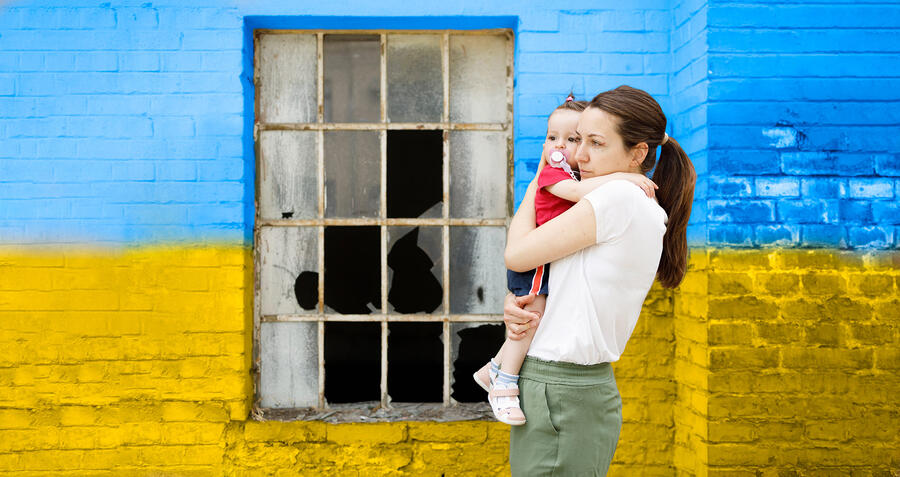News
Press Release Published: 8 March 2024
Joint report on the experiences and aspirations of people forcibly displaced from Ukraine

The European Union Agency for Asylum (EUAA), the Organisation for Economic Co-operation and Development (OECD), and the Gradus Research Company (Kyiv) have published a Joint Report entitled: “Voices in Europe: Experiences, hopes, and aspirations of forcibly displaced persons from Ukraine”. The report highlights the prevailing themes encountered in forced displacement, as told through individual testimonies of over 1 500 respondents to the ongoing Survey of Arriving Migrants from Ukraine.
The report, which unlike previous versions is primarily qualitative in nature, organises and analyses the findings across six chapters, corresponding to the different steps of the journey from Ukraine. The predominant themes cover concerns about loved ones, war-related experiences, accounts from their journeys to, and within the EU, adaptation to life in the host country, reflections on legal status, along with future intentions for both return and onward movement within the EU.
Shelling, loss, trauma: The physical devastation and psychological scars of war in personal accounts
The experiences of war form a crucial part of the report, with respondents detailing how they were forced into displacement by direct military attacks and fear of future assaults. Close to two-fifths of respondents departed in March 2022, and over a third of respondents shared detailed accounts of their war experiences. Testimonies recounted the atrocities of war, including of bombardments, shelling, property destruction, life under occupation and the deprivation of basic needs. These narratives not only recount the physical devastation but also the psychological scars left by such experiences, driving the decision to seek safety.
Leaving Ukraine: The weight of family responsibility
Significantly, the report identifies the profound impact of having children on the decision to flee Ukraine. Displaced persons were, during the first months of the war, predominantly female, with a high level of education, and many travelled with their children. One in five testimonies highlighted the profound concerns surrounding the well-being of children, and the severe hardships and traumas children faced. The narratives also touch on the support and anxiety experienced due to separation from other family members and friends, as well as the challenging responsibility to care for vulnerable and elderly relatives during their displacement and subsequent need to adapt to life in the host country.
Beyond arrival: Persisting challenges in housing, education, and employment
Accommodation was a central topic among respondents’ testimonies and indicated a shift from initial temporary housing solutions in reception centres and with local families, to longer term government-provided or rented accommodation. Half of the respondents were employed in the host country, mainly in low-skilled positions, highlighting a skills-mismatch. The main barriers to employment included language and lack of childcare, while the key needs expressed entailed language learning, financial support, affordable long-term housing, and childcare.
Yearning for home: Hopes for reconstruction and adaptation challenges
Amid ongoing conflict, many respondents have not returned to their home country since their departure. Respondents who left with their partners were less inclined to return, while nearly half were considering family reunification in their host country. Those living closer to Ukraine expressed a stronger intention to return after the war, driven by a desire to contribute to reconstruction efforts, alongside a slight dissatisfaction with their life. Conversely, the fear of finding their homes destroyed and the trauma associated with war experiences discouraged returns to Ukraine, while hopes for better employment prospects and educational opportunities in the EU encouraged some to stay.
